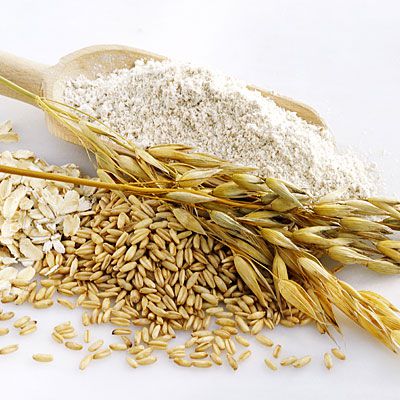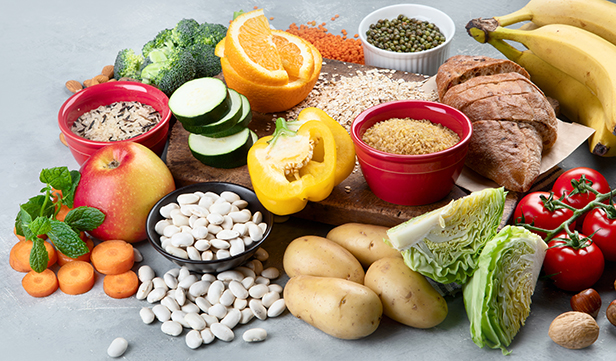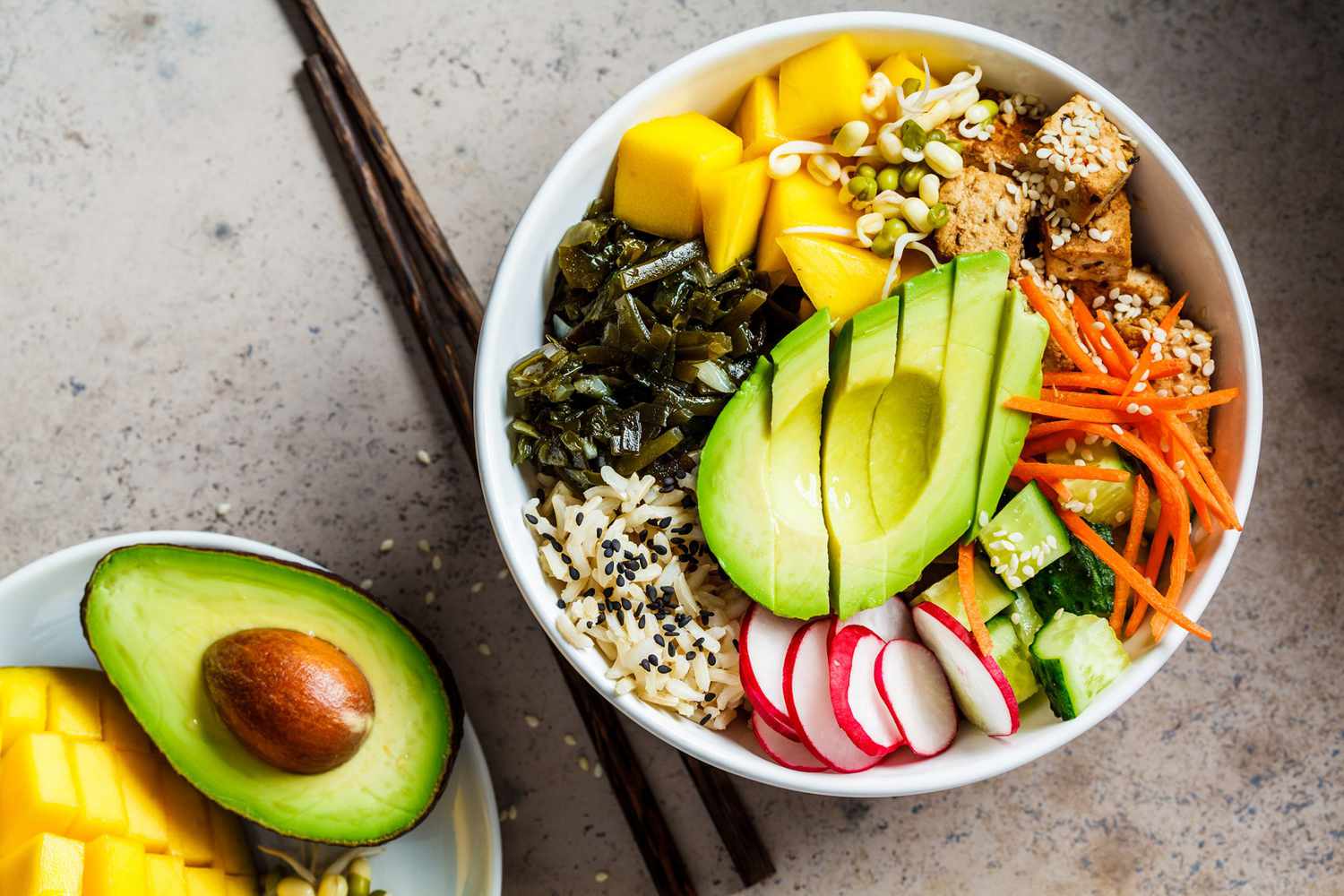
A healthy heart is crucial for overall well-being, and your diet plays a key role in protecting it. With heart disease being a leading cause of death, making smart food choices can help lower cholesterol, reduce blood pressure, and prevent inflammation factors that influence heart health. It’s not about strict rules but about nourishing your body with heart-healthy foods.
1. Prioritize Whole Grains
Whole grains, such as oats, quinoa, and brown rice, are rich in fiber, which can help reduce cholesterol levels and support heart health. Unlike refined grains, whole grains retain their natural fiber and nutrients, offering better protection against heart disease. Aim to replace refined grains (like white bread and pasta) with whole-grain alternatives to boost your heart health.
2. Incorporate Omega-3 Fatty Acids
Omega-3 fatty acids are essential fats that are known to reduce inflammation and improve heart function. They are found in abundance in fatty fish like salmon, mackerel, and sardines. If you’re not a fan of fish, consider adding plant-based omega-3 sources such as chia seeds, flaxseeds, and walnuts to your diet.
3. Eat More Leafy Greens
Leafy greens like spinach, kale, and Swiss chard are packed with heart-healthy nutrients. These vegetables are rich in potassium, which helps regulate blood pressure, and antioxidants that help reduce inflammation. The more leafy greensyou include in your meals, the better your heart health will be in the long run.
4. Reduce Saturated Fats
Saturated fats, found in foods like red meat, butter, and full-fat dairy products, can raise LDL (bad) cholesterol levels, increasing the risk of heart disease. Opt for healthier fat sources, such as unsaturated fats from olive oil, avocado, and nuts, to support better cholesterol management and overall heart health.
5. Choose Healthy Cooking Oils
The oils you use in cooking can have a significant impact on your heart health. Replace saturated fats like butter and lard with heart-healthy oils such as extra virgin olive oil, avocado oil, or walnut oil. These oils are rich in monounsaturated fats, which can help lower bad cholesterol levels.
6. Add More Fiber To Your Diet
Fiber is essential for heart health because it helps lower cholesterol levels and keeps the digestive system running smoothly. High-fiber foods, such as beans, lentils, vegetables, and whole grains, can help reduce the risk of heart disease by improving blood circulation and reducing inflammation.
7. Limit Sodium Intake
Excess sodium in the diet can increase blood pressure, which is a major risk factor for heart disease. The American Heart Associationrecommends limiting sodium intake to less than 2,300 milligrams per day, ideally aiming for 1,500 milligrams for most adults. Choose fresh foods over processed ones and use herbs and spices to season your meals instead of salt.
8. Incorporate Nuts And Seeds
Nuts and seeds are excellent sources of healthy fats, fiber, and protein, all of which are beneficial for heart health. Almonds, walnuts, chia seeds, and flaxseeds are particularly good for lowering cholesterol and maintaining healthy blood pressure. A handful of nuts or seeds per day can make a positive impact on your heart.
9. Enjoy Berries And Antioxidants
Berries such as strawberries, blueberries, and raspberries are packed with antioxidants, particularly flavonoids, that can reduce inflammation and lower the risk of heart disease and improve memory. Antioxidants help protect the heart from oxidative stress and free radical damage, which can contribute to heart disease and aging.
10. Drink Green Tea
Green tea is rich in antioxidants called catechins, which are linked to better heart health. Studies suggest that regular green tea consumption may help lower LDL cholesterol and improve blood flow. Swap sugary beverages for green tea to reduce your sugar intake while supporting heart health.
11. Minimize Processed Foods
Processed foods, such as fast food, chips, and packaged snacks, are often high in unhealthy fats, added sugars, and sodium. These ingredients contribute to weight gain, high cholesterol, and increased risk of heart disease. Opt for whole, unprocessed foodsthat nourish your body and support cardiovascular function.
12. Reduce Added Sugar
High sugar intake is linked to weight gain, higher triglyceride levels, and an increased risk of heart disease. Try to limit your consumption of sugary drinks, sweets, and processed foods. Choose natural sugar sources like fruits and always check food labels to ensure you're not unknowingly consuming too much added sugar.
13. Choose Lean Proteins
Opt for lean proteins like chicken, turkey, and fish instead of red meats or processed meats like sausages and bacon. Plant-based proteins, such as tofu, lentils, and chickpeas, are also heart-healthy choices. These foods are lower in saturated fat and can help you maintain a healthy weight while protecting your heart.
14. Incorporate Garlic Into Meals
Garlic is a heart-healthy food that may help lower cholesterol, reduce blood pressure, and prevent plaque buildup in the arteries. Adding garlic to your meals not only enhances flavor but also provides a variety of cardiovascular benefits. Include it in sauces, soups, and stir-fries for added heart protection.
15. Moderate Alcohol Consumption
While moderate alcohol consumption has been linked to heart health benefits, such as raising HDL (good) cholesterol levels, excessive drinking can have the opposite effect. The key is moderation, up to one drink per day for women and two drinks per day for men. Avoid binge drinking, which can lead to increased blood pressure and heart disease.
16. Stay Hydrated
Hydration plays a vital role in maintaining healthy circulation, lowering blood pressure, and keeping the heart functioning properly. Drinking plenty of water throughout the day can help maintain blood flow and prevent dehydration, which can strain the heart. Aim for 8 glasses of water per day, or more if you’re physically active.
17. Include Fermented Foods For Gut Health
Fermented foodslike kimchi, sauerkraut, and yogurt are rich in probiotics that can help balance your gut microbiome. Emerging research suggests that a healthy gut microbiome may have a direct impact on heart health by improving blood sugar levels and reducing inflammation. Including fermented foods in your diet is a great way to support both gut and heart health.
18. Opt For Plant-Based Foods
A plant-based diet, rich in fruits, vegetables, legumes, and whole grains, has been shown to improve heart health by lowering cholesterol, blood pressure, and inflammation. Plant-based eating patterns, such as the Mediterranean diet, are associated with a reduced risk of heart disease. Aim to make more plant-based choices at each meal.
19. Monitor Portion Sizes
Even heart-healthy foods can contribute to weight gain if consumed in large portions. Monitoring portion sizes is crucial for maintaining a healthy weight and reducing the strain on your heart. Use smaller plates, avoid second servings, and be mindful of the calorie content of foods, especially high-fat options like nuts and oils.
20. Be Mindful Of Cholesterol Levels
Diet plays a key role in managing cholesterol levels. Foods that are rich in fiber, healthy fats, and antioxidants help reduce LDL (bad) cholesterol and support HDL (good) cholesterol. Include more heart-healthy foods like oats, fruits, and nuts to help manage cholesterol levels and reduce the risk of cardiovascular disease.
FAQs
How Does A Heart-healthy Diet Prevent Heart Disease?
A heart-healthy diet can prevent heart disease by lowering cholesterol, managing blood pressure, reducing inflammation, and promoting healthy blood vessels. A diet rich in fiber, healthy fats, and antioxidants helps keep the heart functioning optimally.
What Are The Best Foods For Heart Health?
The best foods for heart health include whole grains, leafy greens, fatty fish, nuts, seeds, and foods rich in antioxidants like berries. Foods that are high in fiber and healthy fats can help lower cholesterol and reduce the risk of heart disease.
How Does Fiber Help With Heart Health?
Fiber helps reduce cholesterol levels by binding to cholesterol in the digestive system and preventing its absorption. It also helps regulate blood sugar and maintains healthy blood pressure, all of which are essential for heart health.
Is It Safe To Consume Fatty Foods If They’re Healthy Fats?
Yes, healthy fats, such as those found in avocado, olive oil, and fatty fish, are essential for heart health. These fats help lower LDL (bad) cholesterol and reduce the risk of heart disease. However, moderation is key, excess fat of any kind can contribute to weight gain.
What Drinks Are Best For Heart Health?
Green tea, water, and herbal teas are excellent choices for heart health. Green tea is rich in antioxidants that can help lower LDL cholesterol, while staying hydrated with water supports healthy circulation and blood pressure.
Conclusion
Small changes to your diet can have a big impact on heart health. By choosing foods that support cardiovascular function and avoiding processed options, you can lower your risk of heart disease. With consistency, these 20 diet tips will help you build a foundation for long-lasting heart health.


